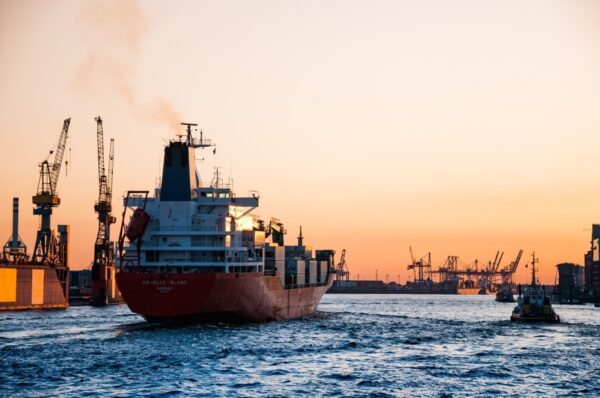The International Maritime Organisation (IMO) said its Marine Environment Protection Commission has adopted a “historic… strategy to reduce greenhouse gas emissions from international shipping”.
Compared with 2008 levels, the United Nations’ global shipping regulator said nations had agreed to cut total annual emissions of greenhouse gases “by at least 20 percent, striving for 30 percent, by 2030” and “by at least 70 percent, striving for 80 percent, by 2040”.
That compared with the prior target for a 50-percent reduction by mid-century. The IMO also said international shipping would reach net zero “close to” 2050. Campaigners wanted a 50% cut by 2030 and a firm commitment on net zero by 2050 at the latest.
The deal came at the end of a five-day meeting at the IMO’s headquarters in London, attended by representatives from 100 countries involved in the shipping industry—which emits roughly the same level of greenhouse gases as aviation.
Reaction
These targets were nowhere near enough to put the world on track to stay within 1.5C of global heating above pre-industrial levels, campaigners said.
Bryan Comer, the marine programme lead at the International Council on Clean Transportation (ICCT), said: “By our estimates, international shipping will exceed its 1.5C carbon budget by approximately 2032 under this agreement.”
Ana Laranjeira, the shipping manager at the NGO Opportunity Green, called the meeting a historic opportunity wasted. “This week had everything to be a historical moment. [But] this agreement does not get us to 1.5C. We need to continue to work to decarbonise international shipping in a just and equitable manner as soon as possible.”
Mark Lutes, WWF head of delegation at the IMO, said: “The IMO emissions reduction strategy has missed the boat on the 1.5°C pathway. There’s no time for half measures, vague commitments and slow progress.
Disappointingly, the shipping industry regulator has left the sector with targets and measures off course for emissions reductions at the scale and pace needed.”
Levy on greenhouse gas emissions
Alongside the negotiations on a reduction in greenhouse gas emissions, attempts to impose a levy on emissions from shipping, in order to fund climate action, have been delayed, the Guardian reported.
Carrying forward discussions on a potential levy on shipping, the proceeds of which would be used to fund emissions reduction and climate adaptation, and potentially the rescue and rehabilitation of countries stricken by climate disaster, will mean the proposal stays alive despite attempts to block it.
Countries pushing for a levy include EU member states including Greece, as well as South Korea and Japan, which are all major shipping nations. The US has also signalled its willingness to consider a levy, and the World Bank has backed it. However, it is now unlikely that any levy could be agreed before 2027 at the earliest, which will delay the potential for developing countries to benefit.
The story was covered extensively and further reporting can be read in Carbon Brief, Washington Post, PhysOrg, ICCT, CNN and WWF.
